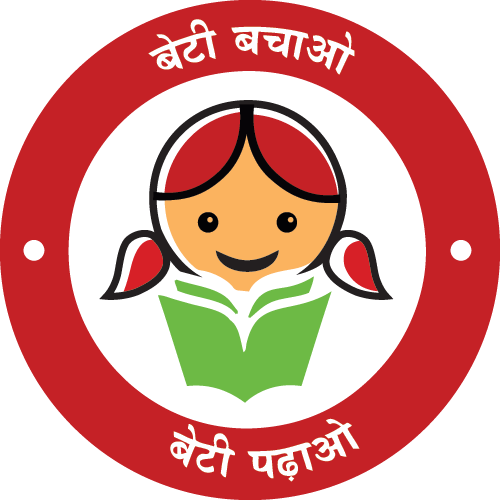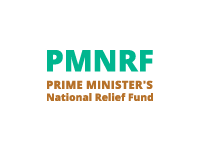Dr. Charu WaliKhanna, Member, National Commission for Women (NCW), New Delhi, hosted a meeting with a small group of Gender Community members at NCW on 23 November 2012
Dr. Charu WaliKhanna, Member, National Commission for Women (NCW), New Delhi, hosted a meeting with a small group of Gender Community members at NCW on 23 November 2012. The meeting also attended by Ms. Shamina Shafiq and Ms. Hemlata Kheria, Members of the National Commission for Women was in the nature of a brainstorming session. Discussed was the possibility of government agencies like the NCW to gain from the Knowledge Management (KM) Services offered by the Gender Community of Solution Exchange. Solution Exchange is a knowledge management initiative of the United Nations agencies in India; and the Gender Community is facilitated by UNWOMEN SARO and UNICEF ICO.
The meeting was attended by Delhi-based Gender Community members who are working with government agencies (viz. Ministry of Women and Child Development, Ministry of Human Resources, Planning Commission, Delhi Commission of Women) or are part of government committees (viz. High Level Committee on Status of Women (HLC) and Gandhi Peace Centre.
The Resource Person & Moderator-Gender Community, Dr. Malika Basu to made a brief presentation of the Knowledge Management work undertaken by the Community to facilitate practitioners’ work. The Gender Community, as Dr. Basu shared, aims to foster knowledge sharing, and provide a platform for practitioners to cross-learn, share their innovations, knowledge-skills, best practices, and collaborate. Cross-learning and collaboration promoted among practitioners through Gender Community’s multifarious virtual and non-virtual knowledge initiatives has gone as inputs and guidelines to facilitate Government policies and Bills; influence development organizations as well as government’s programme interventions and strategies; inform advocacy and campaigns.
The Gender Community, with its over 4500 members spread across the country and abroad, and through its focus on 8 Key areas, promotes Millennium Development Goal (MDG 3) – Gender Equality and Women’s Empowerment, by also focusing on child rights and protection, gender mainstreaming, and rights-based approach to development.
Citing examples, Dr. Basu showcased how Community’s virtual and non-virtual services/activities has enabled members of this Community, increase the effectiveness of their individual efforts - to promote gender equality and equity; specifically address challenges to women’s involvement in development i.e. their increased access, capacity, and equality in social, economic and political endeavors; also deal with gender issues as a cross-cutting theme - by tapping into collective knowledge and collaborative actions.
Building upon its Knowledge Management work and initiatives, members present discussed the need of the Gender Community to proactively engage with relevant government departments and agencies. It was felt that engaging with government departments should also become a priority with the Community. Members added that the Community has to find ways of sharing their work with key and senior representatives of government departments. Unless the idea of knowledge management gets institutionalized within departments, engagement with Gender Community by different agencies will remain a one-off event or engagement.
Dr. Charu WaliKhanna, as a Member of the National Commission for Women, shared her experience of making use of the Community’s platform. Also, having attended a few of Community’s consultations on issues like implementation of the PCPNDT Act in Jharkhand and Uttar Pradesh, Dr. Charu WaliKhanna noted that the Community has shown tremendous ability to network and bring on board different stakeholders. The idea of cross-learning is fundamental for the development sector and needs to be promoted. In that respect, NCW was keen to know how other government agencies, whose representatives may be part of the Gender Community, has made use of the platform and what outcomes did their engagement yield.
Some ideas that were put forth was linking with key government websites to draw attention of government representatives to the various queries hosted on the virtual platform and other activities of the Community. The Gender Community is currently linked with the NCW, NCPCR websites; it also has a wikigender page dedicated to it.
One of the basic knowledge products of the Community is its Consolidated Reply (CR), which is a document based on the queries, discussions hosted on the Community. A CR acts as a ready reference material for practitioners and typically comprises of summary, comparative experiences, related/recommended resources and is based on additional research by the Resource Team.
It was suggested by Ms. Dharmistha Chauhan and Ms. Tenzin Choesang, Consultants with MWCD, that such products can be customized and send to the government agencies for their feed-back. Ms. Simrit Kaur, Member, HLC, raised the issue of the checks and balances the Community uses to filter and validate information that it receives from different quarters. She also added that Gender Community could focus on one or two key areas that are a concern to all key agencies addressing gender issues, and work on it holistically. Information thus generated would be useful to any agency.
Yet another suggestion that was put forth was to organize a workshop to create awareness among different government agencies. Ms. Seema Bhaskaran currently working with MoHRD and Mr. Dushyant Meher, Consultant with the Planning Commission, said that one of the ways that could be explored to draw attention to Gender Community’s work could be to share it with different secretaries in various ministries. It was suggested that Gender Community’s work should be taken to the ministerial level, so that relevant ministries see its importance. Members of Gender Community working in different ministries could act as facilitators to draw attention to community’s knowledge management work.
Based on different inputs from the members, it was unanimously decided that in the upcoming year, the Gender Community could focus on three issues. These include: Violence Against Women (especially reviewing the laws that address VAW in the country); Issues affecting Women of Minority & Dalit Communities; and Gender Budgeting. Through Gender Community, a convergent action on these issues is a possibility and this needs to be taken up further and strengthened, she concluded.




















